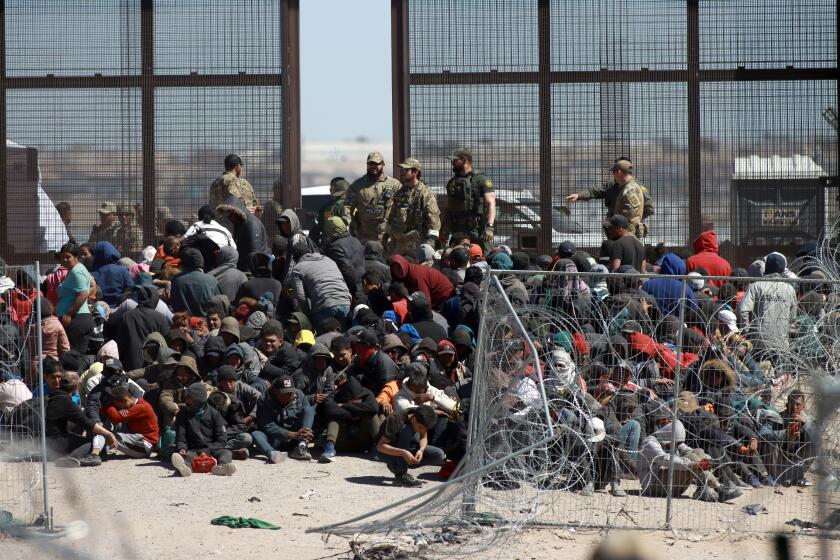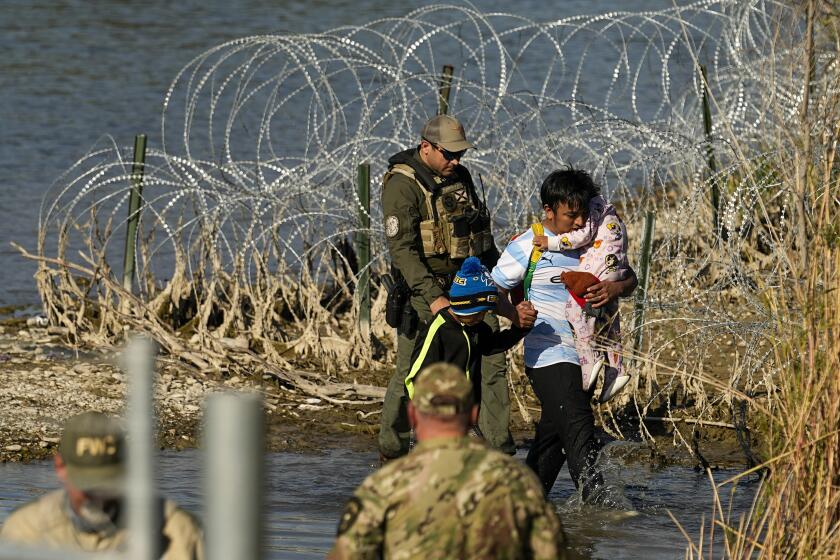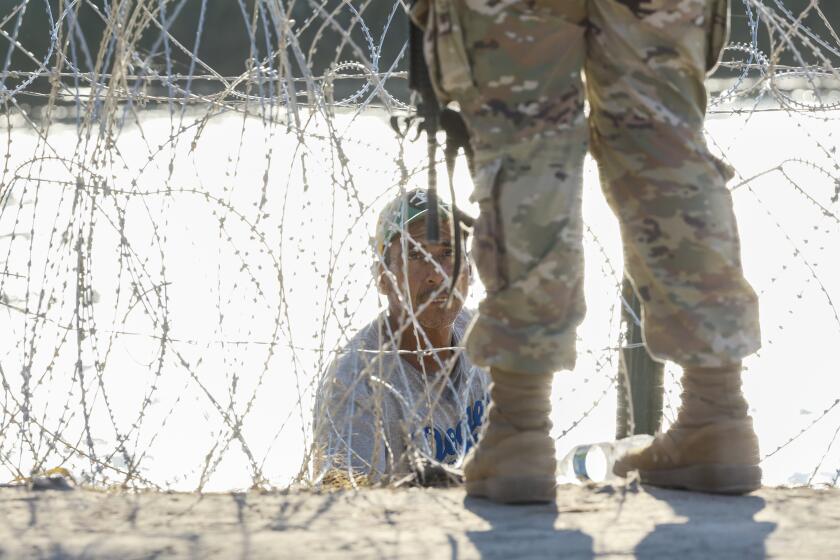Texas’ migrant arrest law is on hold for now under latest court ruling

A Texas law that allows the state to arrest and deport migrants suspected of illegally entering the U.S. will remain on hold for now, a federal appeals court ruled.
The 2-1 ruling late Tuesday from a three-judge panel of the U.S. 5th Circuit Court of Appeals will probably prevent enforcement of the law until a final decision on its merits, either by the 5th Circuit or the U.S. Supreme Court.
The ruling followed a March 20 hearing by a three-judge panel of the court. It’s just the latest move in a seesaw legal case over Republican Gov. Greg Abbott’s strict new immigration law that is not yet ended.
The Justice Department has argued that Texas’ law is a clear violation of federal authority and would create chaos at the border. Texas has argued that the Biden administration isn’t doing enough to control the border and that the state has a right to take action.
Chief Judge Priscilla Richman, an appointee of Republican President George W. Bush, cited a 2010 Arizona law that was largely stricken by the U.S. Supreme Court to say immigration enforcement is exclusively a federal responsibility.
Immigration enforcement has long been the domain of the federal government. Texas is trying to change that.
“For nearly 150 years, the Supreme Court has held that the power to control immigration — the entry, admission, and removal of noncitizens — is exclusively a federal power,” Richman wrote.
The Texas law, she continued, “creates separate, distinct state criminal offenses and related procedures regarding unauthorized entry of noncitizens into Texas from outside the country and their removal.”
She was joined in the opinion by Judge Irma Carrillo Ramirez, an appointee of President Biden.
Judge Andrew Oldham, an appointee of then-President Trump and a former aide to Abbott, dissented with the majority decision.
Hours after the Supreme Court allowed a strict new Texas immigration law to move ahead, a federal appeals court puts it back on hold.
Oldham wrote that the Biden administration faced a high bar to take sovereign power that Texas has to enforce a law its people and leaders want. The judge predicted the same 2-1 split when the merits of the case are considered while the legal challenge plays out.
“There is real peril in this approach. In our federal system, the State of Texas is supposed to retain at least some of its sovereignty,” Oldham wrote. “Its people are supposed to be able to use that sovereignty to elect representatives and send them to Austin to debate and enact laws that respond to the exigencies that Texans experience and that Texans want addressed.”
The law was in effect for several hours on March 19 after the U.S. Supreme Court cleared the way. But the high court didn’t rule on the merits of the case. Instead, it sent the case back to the 5th Circuit, which then suspended enforcement while it considered the latest appeal.
The latest ruling keeps the block in place.
Texas’ plan to arrest migrants who cross the U.S.-Mexico border illegally is on hold while the U.S. Supreme Court considers a challenge.
Spokespersons for Abbott and state Atty. Gen. Ken Paxton did not immediately return phone calls for comment Wednesday morning.
The law, known as Senate Bill 4, allows any Texas law enforcement officer to arrest people suspected of entering the country illegally, but that brief window while the law was in effect revealed that many sheriffs were unprepared, unable or uninterested in enforcing SB 4 in the first place.
Sheriff Thaddeus Cleveland of Terrell County, which touches more than 50 miles of border, said during a gathering of about 100 sheriffs at the state Capitol last week said there’s no practical way for him to enforce the law.
Cleveland said he has no way to transport people, the county jail has space for just seven people and the closest port of entry is a drive of more than 2 1/2 hours away.
Smith County Sheriff Larry Smith, president of the Sheriffs’ Assn. of Texas,
said the law will have little effect in his jurisdiction in east Texas, which is closer to Louisiana and Oklahoma than Mexico which is nearly 400 miles away.
A federal judge has blocked a Texas law that allows police to arrest migrants suspected of entering the U.S. illegally.
Once in custody, migrants could either agree to a Texas judge’s order to leave the U.S. or be prosecuted on misdemeanor charges of illegal entry. Migrants who don’t leave could face arrest again under more serious felony charges.
Texas did not announce any arrests during the brief time the law was previously in effect. Authorities have offered various explanations for how they might enforce the law. Mexico has said it would refuse to take back anyone who is ordered by Texas to return across the border.
Justices approve a new Texas law that allows state and local police to arrest people suspected of illegally crossing the Rio Grande, and allows judges to return them to Mexico.
The law is considered by opponents to be the most dramatic attempt by a state to police immigration since an Arizona law more than a decade ago that was partially struck down by the Supreme Court. Critics have also said the Texas law could lead to civil rights violations and racial profiling.
Supporters have rejected those concerns, saying arresting officers must have probable cause, which could include witnessing the illegal entry or seeing it on video. They also say that they expect the law would be used mostly in border counties, though it would apply statewide.
More to Read
Start your day right
Sign up for Essential California for news, features and recommendations from the L.A. Times and beyond in your inbox six days a week.
You may occasionally receive promotional content from the Los Angeles Times.











